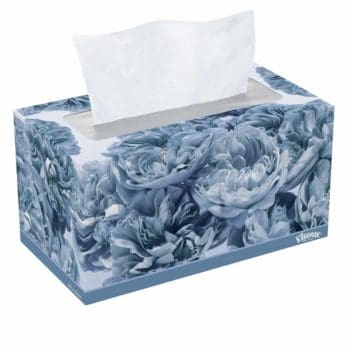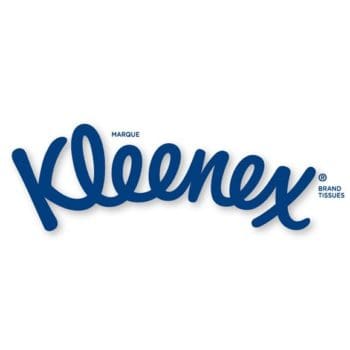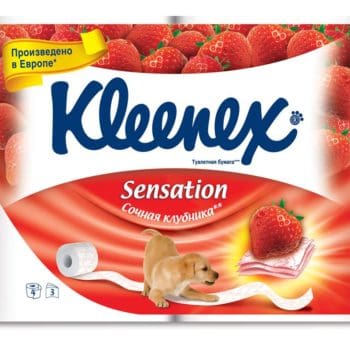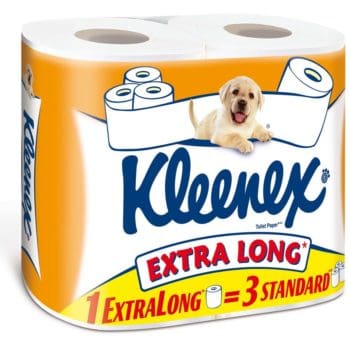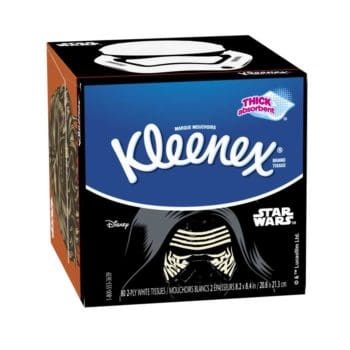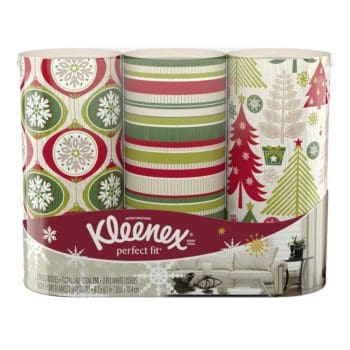The story of Kleenex® starts way back during the First World War when Kimberly Clark, the paper company that makes Kleenex®, had developed a kind of crepe paper for use as a filter in gas masks. In 1924, we began selling Kleenex® in the USA as a cold cream or makeup remover, and in 1925 we launched in the UK. This is when the first Kleenex® ad appeared in the Ladies Home Journal showing “the new secret of keeping a pretty skin as used by famous movie stars…”. Soon, ads were being carried by all the major women’s magazines, including Good Housekeeping, Harper’s Bazaar, Cosmopolitan and Vogue.
By 1930 the idea of Kleenex® tissue as a handkerchief substitute had really taken off. Now, instead of being a product mainly used by women, Kleenex® was there for men and women, young and old alike. In 1956, we launched Kleenex® For Men tissues, with the claim that they ‘stay strong when wet.’ They’ve been the number-one facial tissue brand in the UK for the past 50 years.
In 1983, we launched our handy Kleenex® travel tissues so you could always have a tissue to hand, even when you were out and about. In 1996, we introduced Kleenex® UltraBalm (now known as Kleenex® Balsam tissues). These were the first tissues to contain a microfine layer of calendula, a protective balm that helps prevent your nose becoming red and sore.
And in 2005, we launched a major innovation – Kleenex® Anti-Viral tissues. The first tissue of its kind, it has a clever treated middle layer that kills 99.9% of cold & flu viruses in the tissue* before they spread.
So that’s the quick story of how Kleenex®, since we launched all the way back in 1924, has become the No. 1 brand of facial tissue in the world.
* In the tissue within 15 minutes. Virucidal against: Rhinoviruses Type 1A and 2 (rhinoviruses are the leading cause of the common cold); Influenza A and Influenza B (causes of the flu); Respiratory Syncytial Virus (RSV, the leading cause of lower respiratory infection in children).


